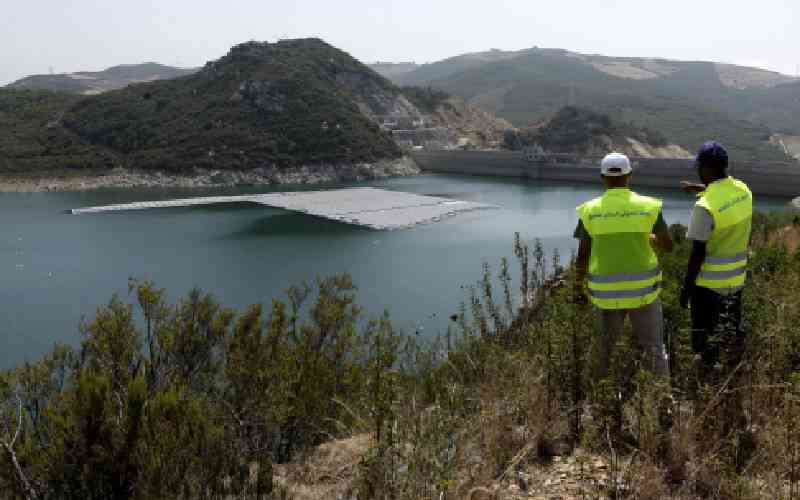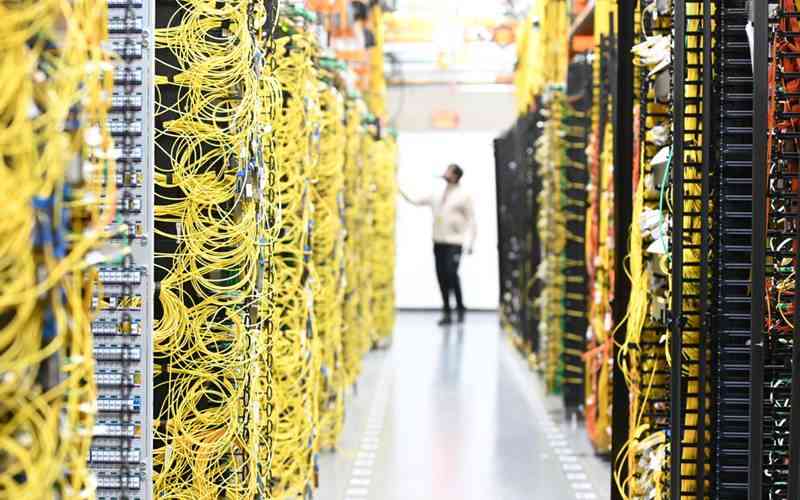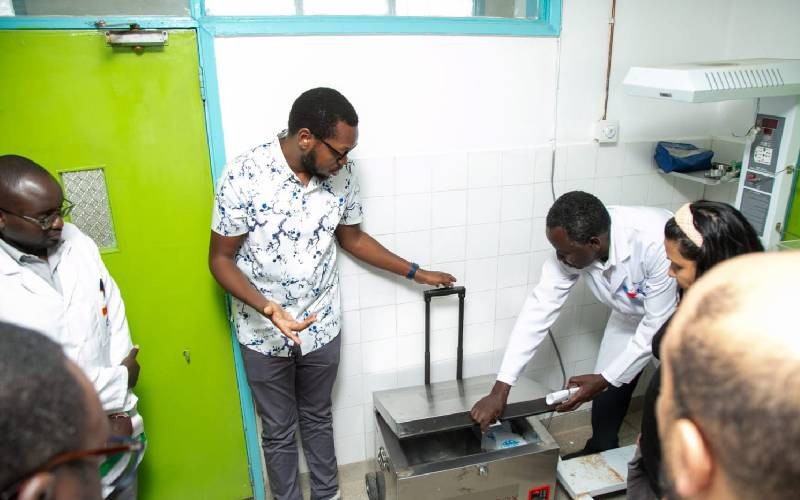
Sun-baked Morocco, grappling with its worst drought in decades, has launched a pilot project aimed at slowing water evaporation while simultaneously generating green energy using floating solar panels.
At a major reservoir near the northern city of Tangier, thousands of so-called "floatovoltaic" panels protect the water's surface from the blazing sun and absorb its light to generate electricity.
Authorities plan to power the neighbouring Tanger Med port complex with the resulting energy, and if it proves a success, the technology could have far wider implications for the North African kingdom.
According to official figures, Morocco's water reserves lost the equivalent of more than 600 Olympic-sized swimming pools every day to evaporation between October 2022 and September 2023.
Over that same period, temperatures averaged 1.8C higher than normal, meaning water evaporated at a higher rate.
Alongside other factors like declining rainfall, this has reduced reservoirs nationwide to about one-third of their capacity.
Water ministry official Yassine Wahbi said the Tangier reservoir loses around 3,000 cubic metres a day to evaporation, but that figure more than doubles in the hot summer months.
The floating photovoltaic panels can help cut evaporation by about 30 percent, he said.
The water ministry has said the floating panels represent "an important gain in a context of increasingly scarce water resources", even if the evaporation they stop is, for now, relatively marginal.
Assessment studies are underway for another two similar projects in Oued El Makhazine, at one of Morocco's largest dams in the north, and in Lalla Takerkoust near Marrakesh.
Similar technology is being tested in France, Indonesia and Thailand, while China already operates some of the world's largest floating solar farms.
'Pioneering'
Since the Moroccan pilot programme began late last year, more than 400 floating platforms supporting several thousand panels have been installed.
The government wants more, planning to reach 22,000 panels that would cover about 10 hectares at the 123-hectare Tangier reservoir.
Once completed, the system would generate roughly 13 megawatts of electricity -- enough to power the Tanger Med complex.
Authorities also have plans to plant trees along the banks of the reservoir to reduce winds, believed to exacerbate evaporation.
Climate science professor Mohammed-Said Karrouk called it a "pioneering" project.
He noted, however, that the reservoir is too large and its surface too irregular to cover completely with floating panels, which could be damaged with fluctuating water levels.
Official data shows water reserves fed by rainfall have fallen by nearly 75 percent in the past decade compared with the 1980s, dropping from an annual average of 18 billion cubic metres to only five.
Morocco has so far mainly relied on desalination to combat shortages, producing about 320 million cubic metres of potable water a year.
Authorities aim to expand production to 1.7 billion cubic metres yearly by 2030.
Karrouk said an urgent priority should be transferring surplus water from northern dams to regions in central and southern Morocco that are more impacted by the years-long drought.
The kingdom already has a system dubbed the "water highway" -- a 67-kilometre canal linking the Sebou basin to the capital Rabat -- with plans to expand the network to other dams.
 The Standard Group Plc is a multi-media organization with investments in media
platforms spanning newspaper print
operations, television, radio broadcasting, digital and online services. The
Standard Group is recognized as a
leading multi-media house in Kenya with a key influence in matters of national
and international interest.
The Standard Group Plc is a multi-media organization with investments in media
platforms spanning newspaper print
operations, television, radio broadcasting, digital and online services. The
Standard Group is recognized as a
leading multi-media house in Kenya with a key influence in matters of national
and international interest.











